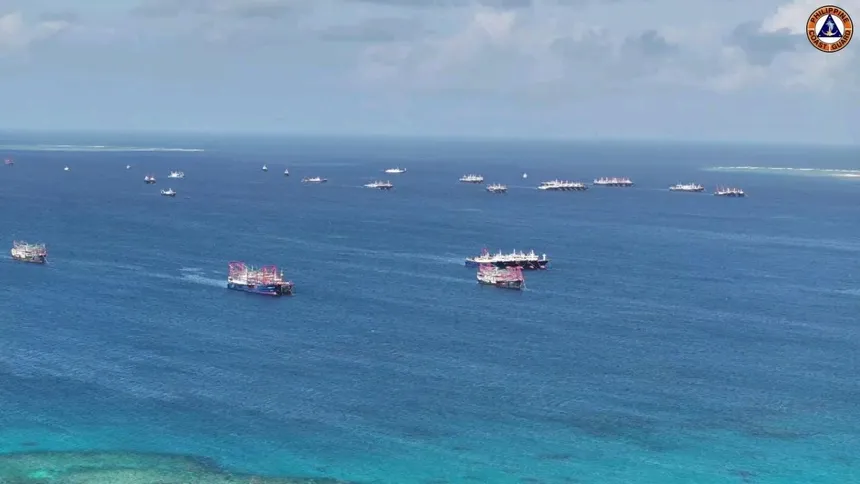A tense confrontation has unfolded in the disputed South China Sea, where Chinese forces seized two Philippine rubber boats delivering food and other supplies to a military outpost on a shoal. The incident has raised fears of a larger conflict pitting the United States and China.
The Philippine government has condemned the actions of the Chinese Coast Guard, saying they were “dangerous manoeuvres, including ramming and towing”, which disrupted the supply mission. According to Philippine security officials, the rubber boats were carrying fresh supplies, including food, water, and unspecified numbers of rifles, when they were intercepted by Chinese Coast Guard personnel. The collision resulted in the injury of at least eight Filipino sailors, including one who lost a thumb.
The Philippines has accused China of violating the 1951 US-Philippine Mutual Defence Treaty, which obligates Washington and Manila to defend each other in major conflicts. The Philippines has also accused China of conducting “dangerous and reckless behaviour” and “contravenes their statements of good faith and decency”.
Chinese authorities have given a different account of the incident, claiming that the Philippine vessel ignored China’s warnings and approached a Chinese vessel in an unprofessional manner, resulting in a collision. The Chinese Foreign Ministry has described the actions of its coast guard as “professional, restrained, reasonable, and lawful”.

Escalating Tensions in South China Sea
The United States has renewed its warning that it is obligated to defend the Philippines, a treaty ally, and has reaffirmed that the mutual defence treaty extends to armed attacks on Philippine armed forces, public vessels, or aircraft, including those of its coast guard, anywhere in the South China Sea.
The incident has sparked concerns about the possibility of a larger conflict escalating in the region. China has become increasingly assertive in pressing its claim to the South China Sea, leading to a rise in direct conflicts with other countries, including the Philippines and Vietnam.
The incident comes just days after China adopted a new law authorising its coast guard to seize foreign ships that “illegally enter China’s territorial waters” and to detain foreign crews for up to 60 days. The law has been seen as a further escalation of China’s assertiveness in the region.
The South China Sea has long been regarded as an Asian flashpoint, and the current tensions and conflicts may pose a threat to regional peace and stability. Chinese actions, including the seizure of the Philippine rubber boats, have been widely condemned, and it remains to be seen whether the incident will lead to further escalation or a resolution of the dispute.
